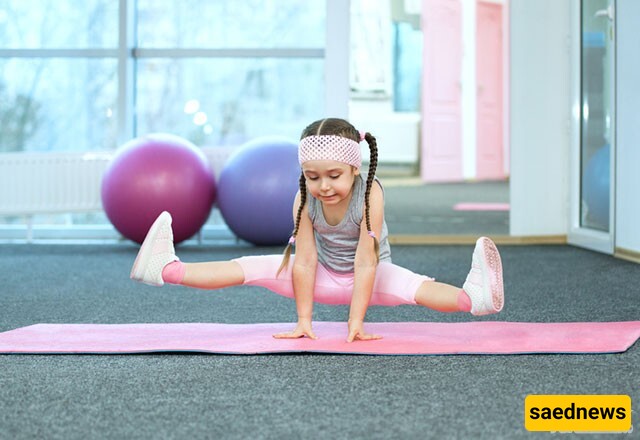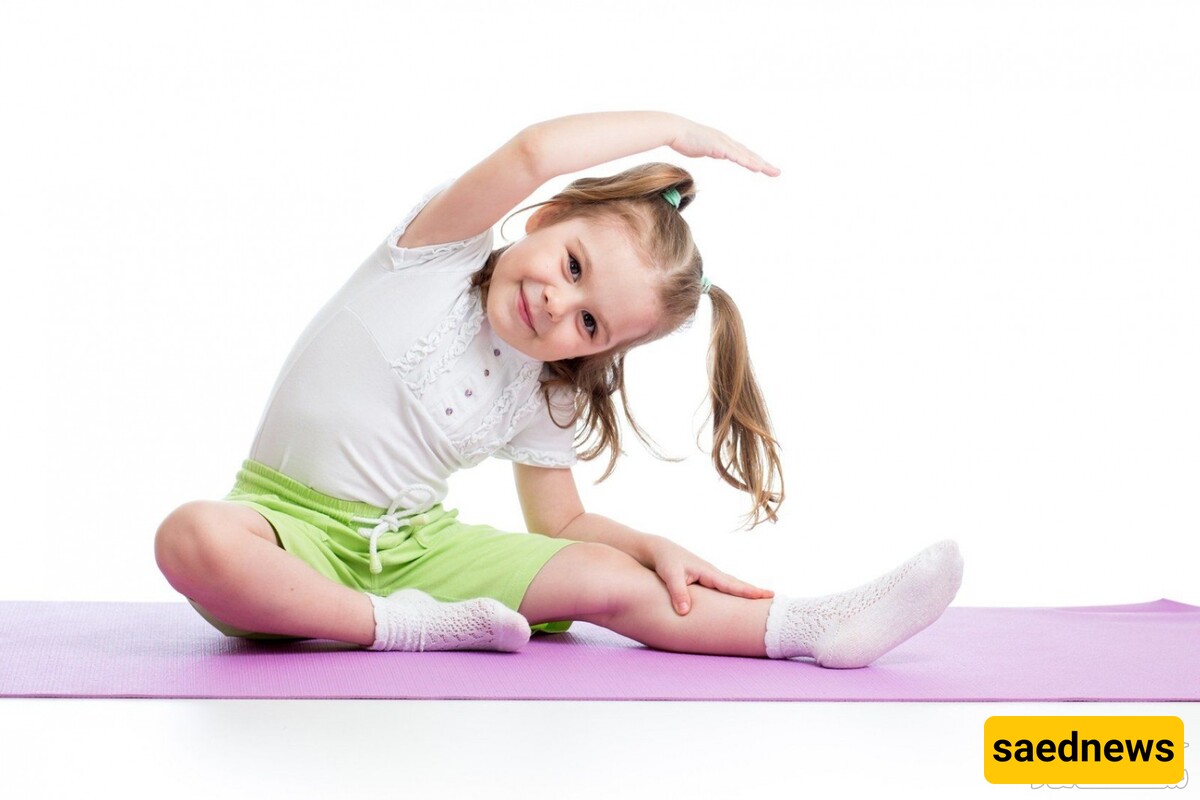SAEDNEWS: Yoga is a practice recommended for all ages. Not only does it bring inner peace, but it also strengthens individuals from within. In this discussion, we will explore the benefits of yoga for children.

According to SAEDNEWS, Yoga is a concentration-based exercise suitable for various age groups, as it promotes mental relaxation and inner strength. Do you want your child to have a healthy way to release energy and stretch their body? If so, yoga is exactly what you need.
Obesity is a significant issue in today's society. As a parent, you should do everything possible to encourage your child to stay active throughout the day.

Considering children's physical characteristics, it is best for them to start yoga after the age of four. At this stage, their body structure is stable, and they have better awareness and control over their movements. Some people wonder whether yoga is suitable for all children, and the answer is yes.
Both introverted and energetic children can benefit from yoga. Even those with diverse behavioral patterns find it helpful. The key is to find a group that suits their personality. Yoga includes various methods aimed at strengthening the body and correcting imbalances.
Yoga helps children stay away from psychological and emotional disorders, creating a sense of balance. It strengthens their body, reduces muscle pain, and improves overall resistance. Children who practice yoga regularly enjoy better sleep and experience less stress, which enhances their focus on studies.
One of the main advantages of yoga is improving body flexibility. Children who practice yoga movements develop better control over their body structure. Additionally, yoga positively impacts their mind and memory.
A significant benefit of yoga is that it helps children create a strong connection between their mind and body through routine exercises. This connection boosts their confidence, as they begin to believe in their ability to control their body and mind effectively.
Yoga helps eliminate physical misalignments such as hunchback and muscle contractions. These movements promote stretching and muscle strengthening, improving body coordination.
Adequate sleep helps boost a child’s immune system, allowing their body to fight off colds and flu more effectively. Additionally, proper sleep improves their mood, which benefits both the child and their parents.

Yoga positively influences a child's attention span. If a child has attention disorders, practicing yoga regularly can help improve their concentration. Yoga also reduces behavioral issues, anxiety, and hyperactivity, making it especially beneficial for children with ADHD.
Controlled breathing in yoga helps manage and reduce stress. It teaches children to regulate their emotions through breathing techniques, which they can use whenever they feel tense.
Yoga exercises have a profound effect on children’s mental and emotional well-being. A child who regularly practices yoga develops a healthy body structure and a strong mind. It helps reduce stress, aggression, and fears, making it particularly beneficial for children with learning disabilities, breathing problems, or hyperactivity.
While sports like football and basketball have numerous benefits, some children may not enjoy competitive sports. Yoga, on the other hand, is non-competitive and focuses on self-awareness. If your child is not interested in team sports but you want them to engage in group activities, yoga is an excellent choice.
One of the key benefits of yoga for children is increased awareness. Yoga is a great tool for balancing the body and mind. Many yoga sessions incorporate storytelling, helping children understand concepts like self-confidence and inspiration from nature.
Yoga enhances balance in both children and adults. Since yoga focuses on engaging all muscle groups, it naturally improves physical stability.

Studies show that children who practice yoga are calmer and happier compared to those who don’t. Yoga reduces anxiety, depression, and fatigue, leading to better mental well-being.
Yoga and meditation improve children’s skills in attention, self-awareness, and self-management. These skills help them make responsible decisions in society. Research shows that children who practice yoga are happier, more adaptable, and more respectful toward others.
Many children react to stress by withdrawing or crying. However, yoga helps them maintain calmness in challenging situations. It teaches them how to remain composed and apply relaxation techniques when needed.
While yoga is not a high-intensity workout, it is highly beneficial for heart health. Studies indicate that yoga lowers blood pressure, regulates heart rate, improves breathing, and enhances circulation. Some weight loss can also occur through yoga, especially when combined with other exercises.
Focusing on the present moment is often challenging, especially for children, who struggle to let go of past events or stop worrying about the future. Their minds often race as fast as their bodies. Yoga helps children shift their attention away from problems, teaching them to calm down and focus on deep breathing and mindful movements.
By incorporating yoga into their routine, children can develop essential life skills that contribute to a healthier and happier future.

